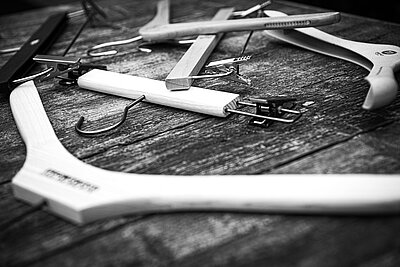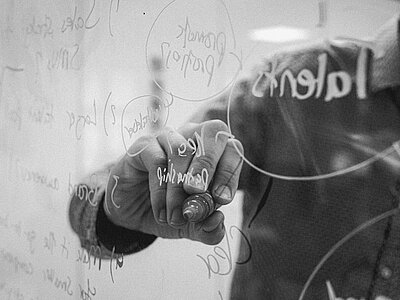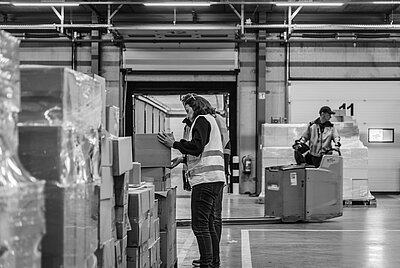As more focus was put on what happens to products and packaging at the end of their lives, Bunzl decided to make a change, and was an early proponent of the sustainable lifecycle. It could see that this was a huge challenge and that customers needed help with translating big ideas into practical products.
In 2019, there was a big step change in the market with a much greater focus on sustainability. There were a lot of questions from customers in the 31 countries Bunzl is active in about what they needed to be aware of as suppliers, and the information they need to supply to customers and consumers. Bunzl decided to create a position to clarify its strategy to ensure clarity of communication. Marcea was put in charge of creating this strategy for The Netherlands.
She says: “I am incredibly lucky and enthusiastic about my job. I have been working for Bunzl for 14 years and was a purchasing product manager previously. About 12 years ago, I got really interested in sustainability and disposable packaging and wanted to see how we could affect change in both products and solutions across the full supply chain. I feel incredibly privileged to take on this new role and I absolutely love my job.”
Positive eco shift
Marcea has noticed a recent shift in focus, adding: “Even five years ago, if a customer didn’t ask about sustainability, no information was offered. This has changed. We are now very proactive as a business to help manifest this change in the market and assist customers in their understanding of all of the issues when it comes to sustainability right across the supply chain – whether that focus is on retail packaging, hygiene and cleaning products, office supplies or Point of Sale materials.
“We see it as part of our role to help inform and educate businesses to take advantage of the circular economy. Because we started this work a few years ago, we are ahead of the curve and our customers now come to us to help steer their future decision making and to help them perfect what we refer to as their sustainable identity, their eco DNA when it comes to packaging.”
Some of the changes have been requested by clients that simply want to do more to help the planet. For other customers, there are other drivers, such as hassle or expense that can be reduced or avoided altogether with Worldpack’s assistance.
Don’t ignore sustainability
Marcea acknowledges there is still much work to be done. She adds: “The brands that really understand their customers are asking questions about their supply chain and are then proactively telling their eco stories and the changes they have put in place to be greener companies. But there are still those who are simply doing the bare minimum.”
The biggest challenge for customers that Marcea has noticed is that they can think that sustainability is achieved with one simple solution. She adds that often when in meetings, she has to focus the conversation on what the client is ultimately trying to achieve. She says: “We are often asked for our opinion on plastic, and those conversations are always really interesting. Lots of people think cardboard is better than plastic for packaging, for example, but plastic has a smaller carbon footprint than cardboard. In addition, certain plastics are more likely to be recycled, rather than downcycled like cardboard.
“In my experience, there are always more solutions available and companies have to use several of them to meet their longer term KPIs. We really enjoy helping customers clarify their sustainability identity as a brand.”
Service with Guts
Part of this consultancy is where Worldpack’s ‘Service with Guts’ comes in, with all of the sales team doing their bit for this eco education. Marcea adds that in the past, she would have been asked to a few meetings. Now, the conversations are ongoing, fast moving, and part of her role is updating Worldpack’s sales teams so they can offer advice upfront, as the focus, awareness and interest in sustainability picks up speed.
The other challenge Marcea sees for customers is in marketing and communications. She adds: “It’s really hard for some customers to marry the idea of luxury packaging and what a customer expects with a brand’s identity and ensuring that the right amount and the right type of packaging is being used. For many customers, there is a real frustration if there is a lot of wasted packaging, or what appears to be plastic or single use – particularly if customers are buying products online and they are being delivered. There is still a huge amount of education required.
“Luxury is shifting towards practical, sustainable packaging and brands using smaller packaging for smaller items. Consumers are more aware of packaging and waste, but larger brands still need to adjust and use fewer materials and less of them. Again, more information is needed on a wider basis.
Awareness and education are really important, as there are a lot of people with an opinion, but a lack of knowledge of what is really going on in the industry.”
As Marcea heads off to another meeting, she adds: “Part of my role is asking the difficult questions, opening up the dialogue and challenging our customers to think differently, which in turn can help to change consumer behaviour.”


